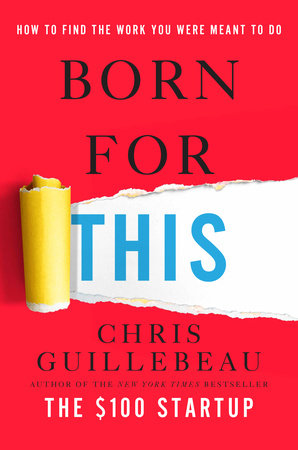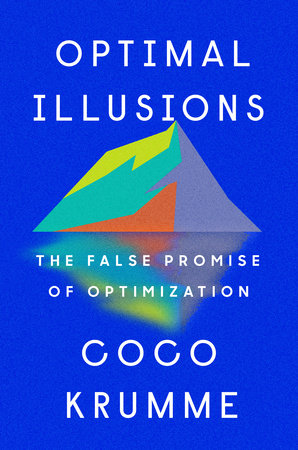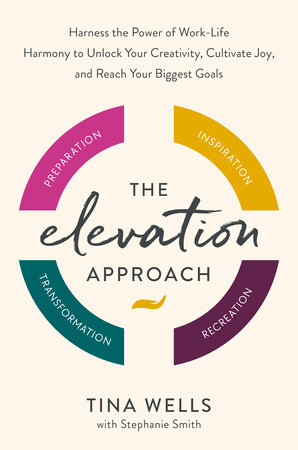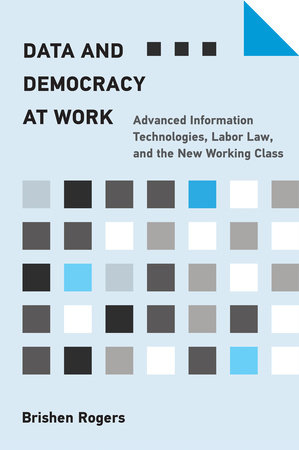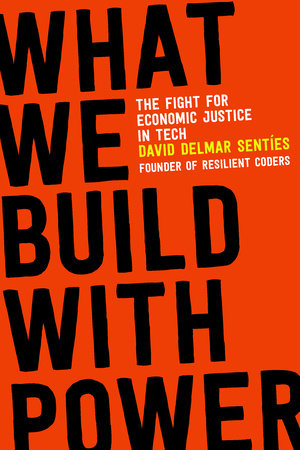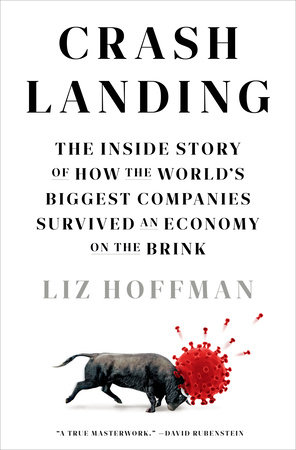Quick Summary
One sentence summary
“Born for This” by Chris Guillebeau is a compelling guide to finding work you love that fits your life perfectly.
Big idea
The central tenet of “Born for This” is that anyone can create the career of their dreams by identifying their unique interests and abilities, then merging them with actionable strategies.
Five key ideas
- The Joy-Money-Flow Model: Guillebeau introduces a model for finding work that maximizes joy, money, and flow, which is the state of being so engaged in an activity that nothing else seems to matter.
- The Side Hustle Strategy: Encouraging the reader to start side projects that can turn into income streams, much like the examples in “The $100 Startup,” also by Guillebeau.
- Winning the Career Lottery: This idea focuses on creating a life that feels like you’re winning every day, not dissimilar to finding your “Element,” as Ken Robinson discusses in his book “The Element.”
- Becoming a Self-Expert: The importance of self-reflection and understanding personal goals and interests, echoing concepts found in “What Color Is Your Parachute?” by Richard N. Bolles.
- Risk and Resilience: Learning to take calculated risks and bouncing back from failures, with an entrepreneurial spirit akin to what is discussed in “Fail Fast, Fail Often” by Ryan Babineaux and John Krumboltz.
Actionable advice
- Create a list of your interests and strengths: Identify what you enjoy doing and what you do well, then look for or create work that leverages these attributes.
- Launch a side hustle: Don’t wait for the perfect moment; start a small project on the side that could potentially grow into your main source of income.
- Experiment and iterate: Treat your career like a series of experiments, tweaking and adjusting as you learn more about what brings you joy and success.
About the author
Chris Guillebeau is an entrepreneur, traveler, and author, best known for his quest to visit every country in the world and his books on self-employment and quest psychology, including “The Art of Non-Conformity” and “The Happiness of Pursuit.”
Read next
For those inspired by “Born for This” and seeking further exploration into meaningful work and self-discovery, consider “Drive” by Daniel H. Pink for a deep dive into what motivates us, or “So Good They Can’t Ignore You” by Cal Newport, which challenges the passion hypothesis and offers a blueprint for cultivating a career you love through skill development.
In Depth
The Joy-Money-Flow Model
The Joy-Money-Flow model is Chris Guillebeau’s trifecta for a fulfilling career. It’s not just about making money or finding happiness; it’s about finding the intersection of both, along with being in the zone — what psychologists call ‘flow.’
Let’s break it down.
Joy: What you love to do. It’s the kind of activity that you’re excited to wake up for, that thing you would do even if you weren’t getting paid for it. Joy is crucial because, without it, work is just a slog.
Money: What sustains you. It’s practical and necessary. Guillebeau doesn’t romanticize passion; he acknowledges that your ideal work must also pay the bills and support your lifestyle.
Flow: What you’re great at. This is where time flies and work feels almost effortless. You’re so good at it that challenges feel exhilarating rather than exhausting.
Guillebeau asserts that when you align these three elements, you hit the sweet spot for a career that feels like you’re “born for this.”
A detailed example from the book features a story of a woman named Beth who turned her love for yoga and community building into a thriving business. She started with joy — her passion for yoga. But it was only when she pinpointed how to make it profitable (money) and utilized her talent for organizing groups and events (flow) that she found a career path that ticked all three boxes.
Guillebeau writes:
“It’s like a Venn diagram with three circles: what you love (joy), what supports you (money), and what you’re really good at (flow). The goal is to find the point of convergence where all three elements overlap.”
This quote encapsulates the essence of the model. It’s about synergy. Where one element alone can lead to a job that’s either unfulfilling, unsustainable, or unremarkable, the combination of all three leads to something extraordinary.
To apply this model, you’d start by self-assessment — making lists, identifying patterns, and perhaps trying out various jobs or side gigs to see how they fit within the Joy-Money-Flow framework. Guillebeau doesn’t just leave you with the theory; he equips you with practical strategies to test and refine your career choices.
The model is not static; it’s dynamic. As people grow, their interests (joy), financial needs (money), and skills (flow) change. Guillebeau encourages constant tweaking and iterating.
Lastly, the model is personal. It’s not a one-size-fits-all answer but a customizable strategy. Guillebeau’s point is not to dictate what should bring you joy, money, or flow but to guide you in discovering those for yourself and then aiming to get them in alignment.
The Joy-Money-Flow model isn’t just a formula; it’s a philosophy. It’s about crafting a career that doesn’t feel like work because it’s so well-suited to you. It’s about finding a professional nirvana where every day feels like it’s tailored to your strengths and passions while also keeping the lights on. That’s the bullseye of “Born for This.”
The Side Hustle Strategy
The Side Hustle Strategy is about creating your own opportunities. It’s the game plan for those who want to earn extra cash without quitting their day job. In “Born for This,” Chris Guillebeau doesn’t just say, “Start a side hustle”—he’s about making it work for you.
Here’s the gist: Don’t put all your eggs in one basket. Your 9-to-5 might be cool, but what if you could earn more doing something you actually like? That’s where the side hustle comes in.
Guillebeau tells us:
“To start a side hustle, you need three things: a product or service, a group of people willing to pay for it, and a way to get paid.”
This is about low risk and high reward. Find something you can do quickly to make extra cash. Keep it simple, no need for a big investment.
Take the story of the guy who buys furniture from Craigslist, fixes it up, and sells it for a profit. He started small, one piece at a time, just on weekends. It didn’t take long before he was making decent cash. He didn’t invent anything new; he just found a way to add value and hustle it on the side.
Guillebeau is clear:
“The side hustle is the new job security.”
It’s your backup plan. It’s your test lab. Try out business ideas with little downside. If it works, great; if not, you’ve got your regular income.
So how do you start? Look at what you’re good at, what you enjoy, and where there’s a need. Maybe you’re great at graphic design. Maybe you bake killer cookies. Whatever it is, there’s a side hustle in there.
It’s all about taking action. You brainstorm, you test, you launch. And maybe, like Guillebeau’s examples, you stumble into something great. This isn’t about overthinking. It’s about doing.
What’s cool is that this isn’t just talk. In “The $100 Startup,” another of his books, Guillebeau showed us real-life stories of people who’ve turned their passions into paychecks. He’s doing it again in “Born for This” with fresh examples.
This key idea is a call to arms: Start your side hustle. Now. Don’t wait for the perfect moment or the big idea. Start small, but just start. It’s a side hustle, after all. It doesn’t need to be your life’s work. Yet. But who knows? That little side project might just be the big break you’ve been looking for.
Winning the Career Lottery
Winning the career lottery sounds like a dream, but Chris Guillebeau makes it about loving your work so much that it feels like you’re winning every day. It’s not about getting lucky; it’s about creating your own luck.
The key? Don’t wait for the perfect job to fall into your lap. Make it.
Guillebeau drops this truth bomb:
“If you make your own luck, you don’t have to gamble.”
He talks about people who’ve hit the career jackpot, not by chance, but through deliberate choices. Like the story of the woman who ditched her corporate job to start a pet-sitting business. She loved animals more than boardrooms. It was scary, sure. But now she’s booked months in advance, making more than she did before, all because she designed her work around her life, not the other way around.
It’s about tuning into what you enjoy and then getting creative about how to make it your career. Find the overlap between what you love, what you’re good at, and what people will pay for. That’s your ticket.
Guillebeau isn’t suggesting we all quit our jobs tomorrow. Instead, he’s saying: start small, but think big. Side gigs can turn into main gigs. Hobbies can become careers.
Here’s the kicker:
“The right work is out there for everyone. It doesn’t find you; you find it.”
Winning the career lottery is about choice. It’s about action. It’s taking what you’ve got, mixing it with what you want, and making something new. It’s the art of crafting a career that brings you joy, cash, and a sense of achievement—daily.
You don’t need to strike it rich to win this lottery. You just need to strike out on the path that feels right for you. And yeah, that might mean redefining what success looks like. It’s personal, after all. What feels like winning to you?
Guillebeau is throwing down the gauntlet. He’s asking: What’s your version of the career lottery? And more importantly, what are you going to do about it?
Becoming a Self-Expert
Becoming a self-expert is all about nailing down what makes you tick. It’s figuring out what you’re into and what you can kick to the curb. Guillebeau’s take? Know thyself, then sell thyself.
In “Born for This,” he gets real about it:
“The most successful people shape their jobs around their lives—not the other way around.”
Think about the lady who loved math and kids. She could’ve been a teacher, right? But classrooms weren’t her jam. So, she started a YouTube channel, breaking down algebra problems. Fast forward, and she’s got a massive following, sponsorships, and she’s still doing the math, her way.
Becoming a self-expert means taking a hard look at what you’re good at and what makes you happy. It’s like a personal deep dive. And it’s more than just taking those online “What’s Your Passion?” quizzes.
Guillebeau doesn’t sugarcoat it:
“Self-awareness is the only sustainable competitive advantage.”
You’ve got to list out your skills, your failures, the times you were in the zone, and those you weren’t. It’s about building a personal inventory.
But it’s not just self-reflection for the sake of it. It’s strategic. Once you know your strengths and passions, you can tailor your job search—or better yet, create your job.
This isn’t fluffy, feel-good advice. It’s actionable intel. It’s about leveraging your quirks and turning them into your professional superpowers. And it’s not set in stone. As you evolve, so does your self-expertise. It’s ongoing work.
So, the question isn’t, “What job do I want?” It’s, “What life do I want?” That’s the self-expert philosophy. Know it, own it, and then make it happen.
The Power of Taking Calculated Risks
Taking calculated risks is about not leaving your fate entirely to chance. It’s about making moves that are thought-out, yet bold. Chris Guillebeau doesn’t just tell you to take a leap; he says to look before you leap, and then… jump.
The thing is, Guillebeau knows playing it safe won’t always get you where you want to go. He’s not saying throw caution to the wind. It’s about smart risks.
He tells the story of a guy who had a comfy job but also had a side gig doing web design. He was good at it, and he knew there was a market. But making the jump was risky. So, he saved up, cut down his expenses, and when he had enough clients to cover half his old salary, he leapt. It wasn’t reckless; it was calculated.
Guillebeau lays it out straight:
“Taking a risk doesn’t mean ignoring the consequences; it means understanding them and believing the risk is worth it.”
It’s this kind of risk that can lead to bigger payoffs—career-wise and life-wise. Guillebeau is all about having that safety net in place: the savings, the plan, the backup. But once that’s set, he’s all about going for it.
Calculated risks are about informed choices. It’s doing the homework so you know what you’re diving into. It’s about not waiting for the perfect moment because that moment doesn’t exist.
Taking calculated risks could mean investing in learning a new skill, even if it’s tight budget-wise. It could mean starting that business on the side while you still have your day job. Or it could mean turning down a promotion because it doesn’t align with where you want to go.
Here’s the kicker:
“The biggest risk is not taking any risk… In a world that’s changing really quickly, the only strategy that is guaranteed to fail is not taking risks.”
That’s what Guillebeau is pushing for—don’t be the person who missed out because you were too afraid to try. And it’s not just about career stuff; it’s a life strategy.
Taking calculated risks is about growth, about pushing your boundaries. It’s about seeing possibilities, not just obstacles. Sure, it’s scary. But according to Guillebeau, that’s the point. The magic happens outside the comfort zone.
Remember, it’s calculated. It’s not jumping out of a plane without a parachute. It’s knowing you have the chute and you’ve checked it thrice. That’s the Guillebeau way—be brave, but be smart about it.
Actionable Advice
- Identify Your Joy: Write down activities that make you lose track of time.
- Assess Skills: Make a list of things you’re good at and cross-reference with what you enjoy.
- Start a Side Hustle: Choose something low-cost and launch it fast. Learn as you go.
- Craft Your Ideal Role: Blend what you love, what you can be paid for, and what you’re good at.
- Save Up: Financial cushion equals freedom to explore.
- Experiment Often: Small tests can lead to big results. Fail small, learn big.
- Network Your Way: Create genuine connections, not just business contacts.
- Volunteer or Freelance: Get a taste of what you like and what you don’t.
- Negotiate Flexibility: More control over your time often equals more satisfaction.
- Educate Continuously: Stay curious, learn new skills, and adapt.
- Make Decisions: Don’t get stuck in analysis paralysis.
- Reflect Regularly: Revisit your choices and adjust as necessary.
About the Author
Chris Guillebeau is an author, entrepreneur, and speaker. Renowned for his quest to visit every country in the world (a feat he completed before 35), his life exemplifies embracing adventure and challenging the status quo. He’s penned several bestsellers, including “The $100 Startup” and “The Art of Non-Conformity,” which echo his philosophy of life as a series of quests and the importance of non-traditional career paths. Guillebeau’s work centers on helping people live fulfilling lives by combining their passions with income—without adhering to the conventional 9-to-5. He’s the host of the “Side Hustle School” podcast, imparting wisdom on turning ideas into income. His beliefs are a blend of practicality and aspiration, urging people to take calculated risks and make deliberate choices for a more meaningful life. Through his annual World Domination Summit, he gathers like-minded individuals who share his ethos of living unconventionally and making a positive impact. Guillebeau champions the idea that you don’t need a business degree or a huge amount of money to create a life that excites and rewards you.
Read These Next
You might like these similar books
- “The $100 Startup” by Chris Guillebeau
- “The 4-Hour Workweek” by Timothy Ferriss
- “The Art of Non-Conformity” by Chris Guillebeau
- “Side Hustle: From Idea to Income in 27 Days” by Chris Guillebeau
- “Deep Work: Rules for Focused Success in a Distracted World” by Cal Newport
FAQ
Q: What is ‘Born for This’ about?
A: ‘Born for This’ is a guide to finding the work you were meant to do, blending passion with income and satisfaction.
Q: Who should read ‘Born for This’?
A: Anyone looking to find their ideal career path or wishing to align their work more closely with their personal passions and strengths.
Q: What makes Chris Guillebeau’s advice practical?
A: Guillebeau offers actionable steps, personal anecdotes, and encourages small, calculated risks rather than drastic changes.
Q: Can ‘Born for This’ help me find a new career?
A: Yes, it provides strategies for identifying your ideal work and making calculated moves towards a career you love.
Q: Is ‘Born for This’ only for entrepreneurs?
A: No, it’s for anyone seeking fulfillment in their work, whether as an employee, freelancer, or entrepreneur.
Q: How long will it take to see results from the advice in ‘Born for This’?
A: Results can vary, but Guillebeau encourages consistent, small actions for gradual progress towards career satisfaction.

